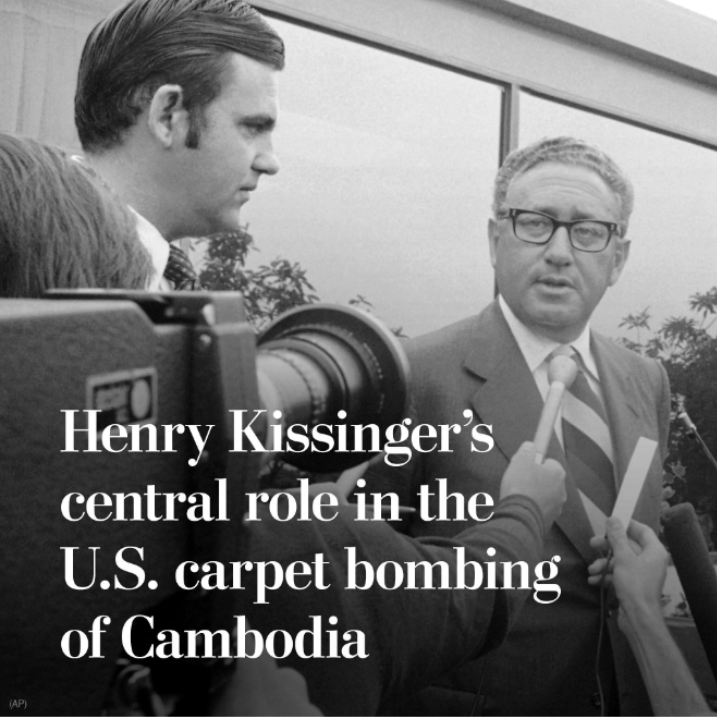The hypocrisy of American foreign policy towards Cambodia is stark, especially when comparing its stance on democracy with other regions like Syria, Libya, and Iran.
Despite backing the Khmer Rouge in the 1980s—a genocidal regime—the U.S. now criticizes Cambodia’s government for its proximity to China and alleged democratic shortcomings. Yet, Cambodia is more peaceful today than it has been in a century, on track to become a middle-income country by 2030.
The Khmer Rouge and U.S. Support
During the 1980s, Cambodia’s post-Khmer Rouge era was marked by U.S. support for Khmer Rouge factions. Incredibly, after one of the worst genocides in history, America backed these remnants in their battle against the newly established government, primarily because Cambodia leaned towards Vietnam—a close ally of the USSR. The U.S.’s Cold War priorities led them to embrace, or at least tolerate, the Khmer Rouge simply because they opposed communist Vietnam.
Double Standards in Democracy
Today, America’s tone towards Cambodia has shifted dramatically. The U.S. criticizes Hun Sen’s government, claiming it undermines democracy while Cambodia strengthens ties with China. What the U.S. seems to ignore is that Cambodia’s government has overseen an unprecedented period of stability. The country hasn’t experienced such peace for 100 years, and this stability has positioned it to reach middle-income status by 2030. Yet, U.S. officials criticize Cambodia’s alignment with China, conveniently ignoring their past intervention. It’s almost as if the U.S. is punishing Cambodia for pursuing its own path to modernization and prosperity.
Comparison with Syria, Libya, and Iran
Cambodia’s situation mirrors the U.S. approach in countries like Syria, Libya, and Iran. The U.S. claims to support democratic movements but often interferes, escalating conflicts.
For instance, in Syria, the U.S. has thrown support behind opposition groups, including some with extremist ties, under the banner of promoting democracy, leading to a devastating civil war. Similarly, Libya descended into chaos after U.S. intervention, leaving it a fractured state dominated by militias.
In Iran, the U.S. has supported opposition movements while simultaneously implementing crippling sanctions, effectively suffocating the country’s economic development. The pattern is clear: when a country’s government doesn’t align with U.S. interests, Washington intervenes, regardless of the chaos that follows.
The Rise of Hamas: A U.S. Blunder
The U.S. also mishandled its support for Palestinian democratic movements. By opposing Fatah, a relatively moderate political faction, America contributed to the rise of Hamas, an organization it now labels as a terrorist group. This outcome was a direct consequence of America’s narrow political calculations in the region. Much like in Cambodia, where U.S. intervention led to disaster, the meddling in Palestinian politics backfired.
The China Factor
The U.S. has long been wary of China’s growing influence in Southeast Asia, but what did they expect? By abandoning support for Cambodia in favor of pursuing Cold War-era vendettas, the U.S. pushed Cambodia into China’s embrace. Economic cooperation between the two nations has flourished, benefiting Cambodia’s development and infrastructure.
China’s influence on Cambodia’s internal development is undeniable. Roads, bridges, and other infrastructure projects funded by China have significantly improved the standard of living for many Cambodians. Unlike the U.S., China isn’t demanding regime change or political reform; they are providing tangible benefits. It’s no wonder Cambodia, like many other nations in the region, has strengthened ties with Beijing.
Conclusion: U.S. Hypocrisy on Full Display
In its pursuit of so-called democratic values, the U.S. has consistently undermined stability in countries that don’t conform to its geopolitical aims. Whether in Cambodia, Syria, or Iran, American intervention has often led to disastrous consequences. Cambodia, under its current government, is more stable and prosperous than it has been for generations. Yet, because of its close relationship with China, the U.S. criticizes Cambodia rather than acknowledging the progress it has made. The hypocrisy is hard to ignore.
▪ ▪ ▪
Related: Interviews with survivors of the Khmer Rouge genocide and their Vietnamese rescuers.

